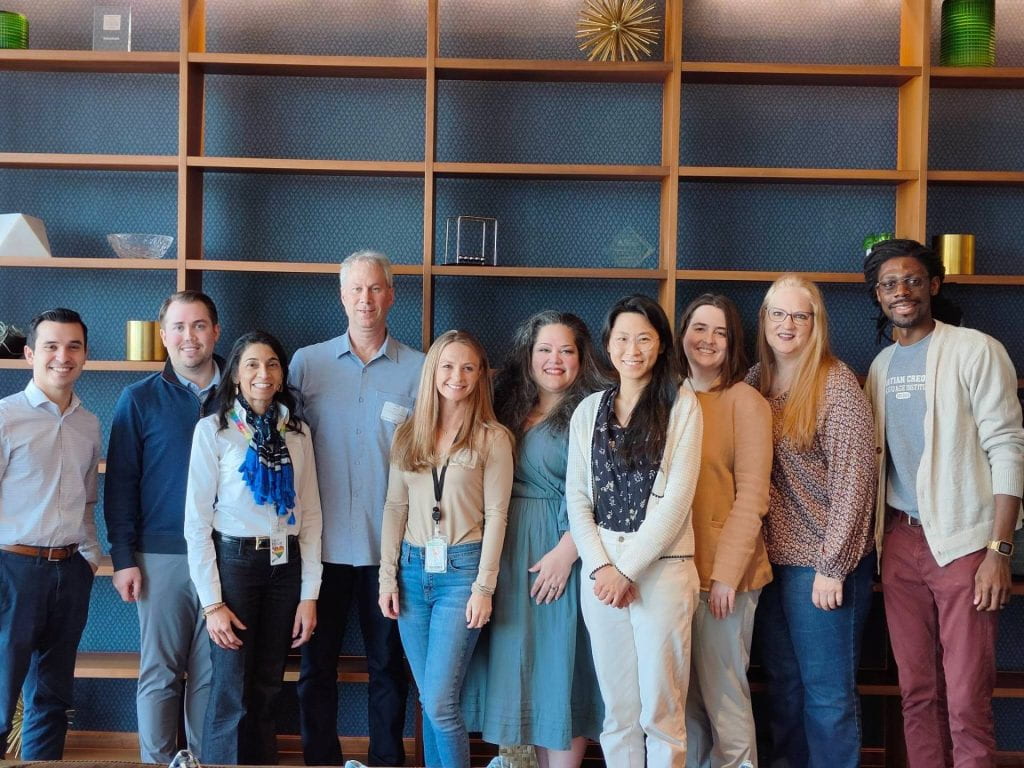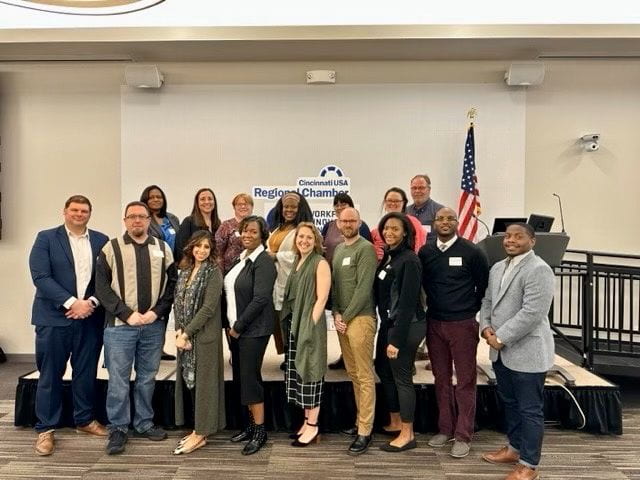How can we cultivate the conditions for more awe-inspiring workplaces?
How might intelligence automation reshape human occupational skills in the next decade?
How can research inform a new pedagogy of modern apprenticeship?
How is green design thinking different from design thinking in general?
Earlier this month, practitioners and Next Level Lab researchers explored these questions at our Spring 2023 workshop series, Bringing Next Level Learning to Practice. The two-day hybrid program welcomed participants online and in three in-person Local Learning Communities in Boston, MA; Cincinnati, OH; and Woodland, CA. Participants represented 16 states across the country and were affiliated with roughly 40 different organizations including non-profits, government organizations, research and higher education institutions, foundations, and industry.
After a general welcome from NLL Faculty Director Dr. Tina Grotzer, participants engaged in four modules across two days: Experiences of Awe and Meaning at Work with Dr. Megan Cuzzolino, Human Occupational Skills in the Era of Generative AI with Dr. Chris Dede and Ashley Etemadi, Designing Modern Apprenticeship Programs for a Digital Era with Tessa Forshaw and Accenture Collaborating Partner Beca Driscoll, and Beyond Design Thinking: High-Leverage, Earth-Resonant Moves for Green Innovation with Dr. Tina Grotzer. Each module block started with a brief independent learning experience followed by participants connecting with their Learning Communities for a guided discussion led by an experienced facilitator. Each module concluded with a debrief discussion with members of the NLL research team.
These interactions with practitioners are crucial to our lab’s mission, as we aim to pursue avenues of research that are grounded in authentic workforce development contexts and seek tangible implications for work in the field. While the workshops provide an opportunity for direct engagement with the practitioners in attendance, the resulting resources are intended to support a broader audience. Toward that aim, the materials have been adapted into a set of standalone modules that can be engaged with individually or with colleagues. Several sets of materials can already be found on the Learning Modules page of our website, with more forthcoming in the months ahead.


